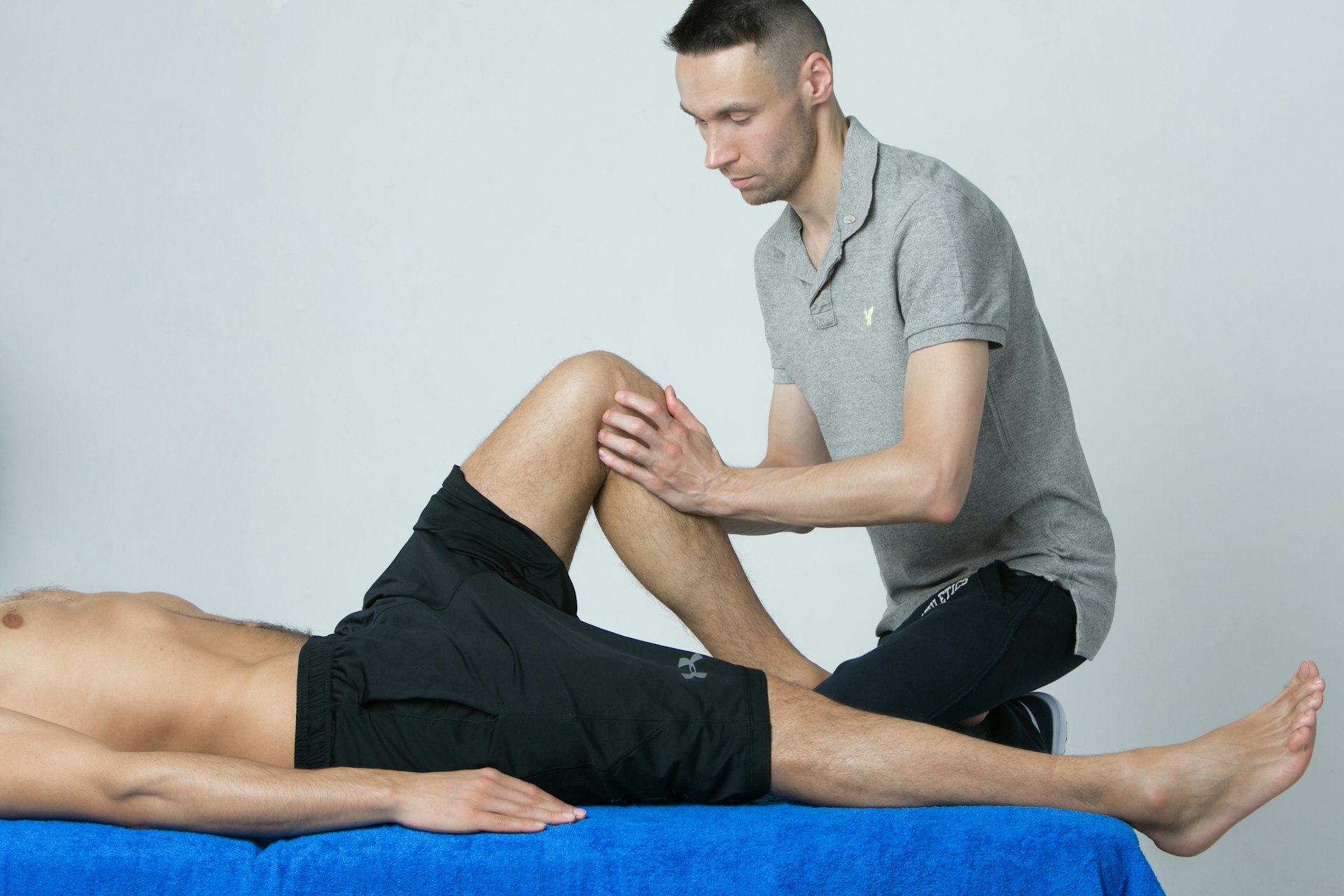Holistic Pathways to Fertility: Integrative Approaches for Conception and Well-Being

Photo by Raymart Arniño on Unsplash
Understanding Holistic Fertility Approaches
Holistic approaches to fertility and conception are gaining traction among individuals and couples seeking to optimize their reproductive health. Unlike traditional fertility treatments that focus solely on biological factors, holistic fertility strategies emphasize the integration of mind, body, and spirit. This comprehensive perspective considers not only physical health, but also emotional, mental, and lifestyle factors that may influence the ability to conceive. By nurturing all aspects of well-being, individuals can create a more supportive environment for conception and long-term health [1] [3] .

Photo by Clay Banks on Unsplash
Key Components of Holistic Fertility
Several core practices are commonly incorporated into holistic fertility and conception plans. Each plays a unique role in helping balance the body and mind, manage stress, and improve overall health:
Nutrition and Dietary Support
Nutrition forms the foundation of reproductive health. A balanced, whole-foods diet rich in fruits, vegetables, lean proteins, whole grains, and healthy fats supplies the essential nutrients that support egg and sperm quality, hormone regulation, and cellular health. Foods high in antioxidants, such as berries and leafy greens, protect reproductive cells from damage. Emphasizing complex carbohydrates, like quinoa and oats, helps maintain stable blood sugar, while healthy fats from avocados, nuts, and olive oil are critical for hormone production. Limiting processed foods and added sugars further supports hormonal balance. Consulting a registered dietitian with expertise in fertility may help you develop a personalized, nutrient-dense eating plan [5] [4] .
Stress Management and Mind-Body Practices
Chronic stress can disrupt hormone production and menstrual cycles, making conception more challenging. Holistic fertility approaches prioritize stress reduction through techniques like meditation, mindfulness, yoga, and deep breathing. These practices help calm the nervous system, improve emotional well-being, and may positively influence reproductive function. Some fertility centers may offer in-house classes or resources, but you can also find guided meditation and yoga programs through reputable wellness organizations or certified instructors. For personalized support, consider seeking a licensed therapist or counselor trained in fertility-related stress management [1] [2] .
Acupuncture and Traditional Therapies
Acupuncture is one of the most established holistic therapies for fertility. By stimulating specific points on the body, acupuncture aims to improve blood flow to reproductive organs, balance hormones, and reduce stress. Research suggests that acupuncture may help support fertility, particularly when combined with conventional treatments like in vitro fertilization (IVF) or intrauterine insemination (IUI) [2] . If you are interested in acupuncture, seek a certified acupuncturist with experience in reproductive health. It is advisable to consult your fertility specialist or primary care physician before beginning any new complementary therapy.
Physical Activity and Lifestyle Adjustments
Regular physical activity supports hormonal balance, improves circulation, and helps maintain a healthy weight-all important for reproductive health. Activities like brisk walking, swimming, and yoga can be particularly beneficial. However, excessive or intense exercise may have the opposite effect, so it’s important to tailor your routine to your individual needs and consult with your healthcare provider. Lifestyle changes such as quitting smoking, moderating alcohol intake, and maintaining a healthy sleep schedule further enhance fertility potential [4] .
Personalization and Comprehensive Care
Holistic fertility recognizes that every individual’s path to conception is unique. Factors such as age, medical history, emotional health, and lifestyle require personalized care plans. Leading fertility centers often collaborate with nutritionists, therapists, acupuncturists, and fitness trainers to develop integrative treatment strategies. Patients are encouraged to communicate openly with their healthcare teams to ensure that all aspects of their well-being are considered. If you are considering holistic approaches, start by consulting your OB/GYN, reproductive endocrinologist, or an integrative medicine specialist. They can help you identify reputable local practitioners and resources [1] .
Potential Challenges and Alternative Pathways
While holistic methods can support fertility, they may not address certain underlying medical conditions, such as blocked fallopian tubes or severe male factor infertility. In these cases, conventional medical interventions are essential, but holistic strategies can still play a valuable supportive role. If you face significant fertility challenges, a combination of medical and holistic approaches may provide the best results. Remember to discuss any complementary therapies with your primary provider to ensure coordinated and safe care [2] .
Actionable Steps to Access Holistic Fertility Support
- Consult with your primary care provider or OB/GYN: Discuss your interest in holistic fertility strategies and ask for referrals to integrative practitioners.
- Seek out licensed professionals: Look for nutritionists, acupuncturists, and therapists with experience in reproductive health. Ask about their credentials and approach.
- Research reputable fertility centers: Many established fertility clinics have integrative medicine departments or can refer you to holistic practitioners. For example, Loma Linda University Center for Fertility offers guidance and resources for patients interested in these methods [1] .
- Develop a personalized plan: Work with your care team to create a holistic fertility plan that fits your unique circumstances, preferences, and goals.
- Leverage community and support groups: Joining local or online fertility support groups can provide encouragement, shared experiences, and practical advice on integrating holistic practices.
Summary of Key Takeaways
Holistic approaches to fertility and conception offer a comprehensive, whole-person perspective that can complement conventional medical treatments. By focusing on nutrition, stress management, acupuncture, physical activity, and personalized care, individuals may enhance their reproductive health and emotional well-being. While not a substitute for medical intervention in cases of significant infertility, holistic strategies can create a supportive environment for conception and foster lifelong healthy habits. To get started, consult your healthcare providers, seek out credentialed integrative specialists, and develop a personalized, evidence-informed plan.
References
- Loma Linda University Center for Fertility (2024). Holistic Fertility Overview.
- ChinBaby (2024). Traditional vs. Holistic Fertility Care: Find Your Balance.
- Healix Hospitals (2024). Holistic Approaches to Fertility: Integrative Medicine and Wellness.
- Inovi Fertility (2024). Holistic Fertility: Key Lifestyle Changes and Nutritional Support.
- Dr. Nidheesachdev (2024). Holistic Approaches to Boost Fertility.
MORE FROM hotondeals.com













